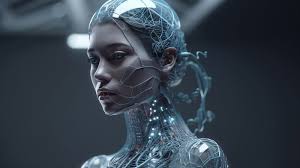A Growing Presence in the Medical Field
Artificial intelligence (AI) has made significant inroads into the healthcare sector, prompting debates about whether AI can, or should, replace human doctors. Current data and trends suggest a complex scenario where AI excels in certain areas but still heavily relies on human oversight and expertise.
AI's Capabilities: Enhancing Diagnostic Accuracy
Studies indicate that AI algorithms can diagnose certain conditions, such as skin cancer and retinal diseases, with an accuracy rate approaching 90% to 95%. These algorithms analyze medical images much faster than human doctors, providing results in seconds. This speed and accuracy offer immense benefits, especially in high-volume or resource-limited settings.
AI in Surgery: Precision and Endurance
In the realm of surgery, robotic systems assist surgeons by enhancing precision during operations. These systems can perform tasks like suturing with consistent precision that may surpass human steadiness. However, they do not operate independently; rather, they execute tasks controlled and overseen by human surgeons. This collaborative approach combines AI efficiency with human judgment and expertise.

The Human Element: Empathy and Ethical Judgments
One critical area where AI cannot replace human doctors is in providing empathy and making ethical decisions. The role of a doctor isn't solely to diagnose and treat but also to comfort and communicate with patients, understanding their emotions and cultural backgrounds. These aspects of medical care are inherently human and are vital for effective patient care.
Patient Trust and Interaction
Trust plays a fundamental role in the doctor-patient relationship. A survey conducted across several hospitals revealed that while 60% of patients appreciated the efficiency and information accuracy provided by AI, they still preferred human interaction when receiving serious health news. Patients often seek reassurance and a personal touch, something current AI cannot provide.
Balancing AI and Human Roles in Healthcare
Rather than replacing doctors, AI is more likely to continue augmenting the healthcare field, enhancing doctors' abilities to diagnose and treat diseases while leaving the nuances of patient care to humans. The integration of AI helps in handling repetitive tasks, analyzing data, and providing diagnostic support, which can free up doctors to focus more on patient care and complex decision-making processes.
Discover more insights on the dynamic between AI or human roles in medicine.
Looking Forward: Integration Rather Than Replacement
As AI technology advances, its integration into healthcare seems inevitable and beneficial but as an assistant to, rather than a replacement for, human doctors. The future likely holds a scenario where AI and human doctors work in tandem, leveraging the strengths of both to improve patient outcomes and healthcare efficiency. The challenge lies in balancing technological advances with the essential human qualities that define good medical practice.